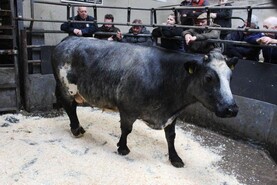The EU decision to grant the UK request for more time in relation to meat products going from Britain to Northern Ireland (NI) represents a first step in making the protocol work.
It was the first occasion when the UK sought agreement as opposed to acting unilaterally when part of the EU-UK trade agreement wasn’t working.
For its part, the EU engaged in discussion on the protocol with an NI Assembly Committee, and while it may have been an occasion when local politicians used the platform to restate positions as opposed to challenge Commission Vice President Maroš Šefcovic, it was still a useful engagement.
Reset of relations
The decision by the UK to apply for and the EU to grant an extension of the grace period on chilled processed meat creates an opportunity for EU-UK collaboration rather than confrontation.
However, this is the first step in a process of making the protocol work rather than a solution to the operational problems with it.
The political problems are another and separate difficulty that also require solving.
The Commission Vice-President made the correct noises about the EU willingness to be flexible but the widespread view is that the EU isn’t known for its flexibility or willingness to turn a blind eye.
Therefore, the rules will have to be changed or rewritten to reflect the fact that NI is part of the UK single market and cannot be administered for customs and SPS controls in the way that bulk container shipping from South America to the EU would be in the port of Rotterdam.
Best of both
Aside from the increased costs of doing business which are unavoidable with Brexit, there remains for NI, as the Commissioner pointed out, a real opportunity for manufacturers to service the UK and EU markets without restriction.
This is acknowledged in the agri-food sector and is reflected in the surge of cross-border trade on the island of Ireland since the beginning of the year.
It is a very different picture for the agri-food industry in Britain, where sales to the EU have collapsed since January.
Only large companies with full truck loads are active in exporting, with smaller food companies reliant on groupage transport opting out.






 This is a subscriber-only article
This is a subscriber-only article











SHARING OPTIONS: